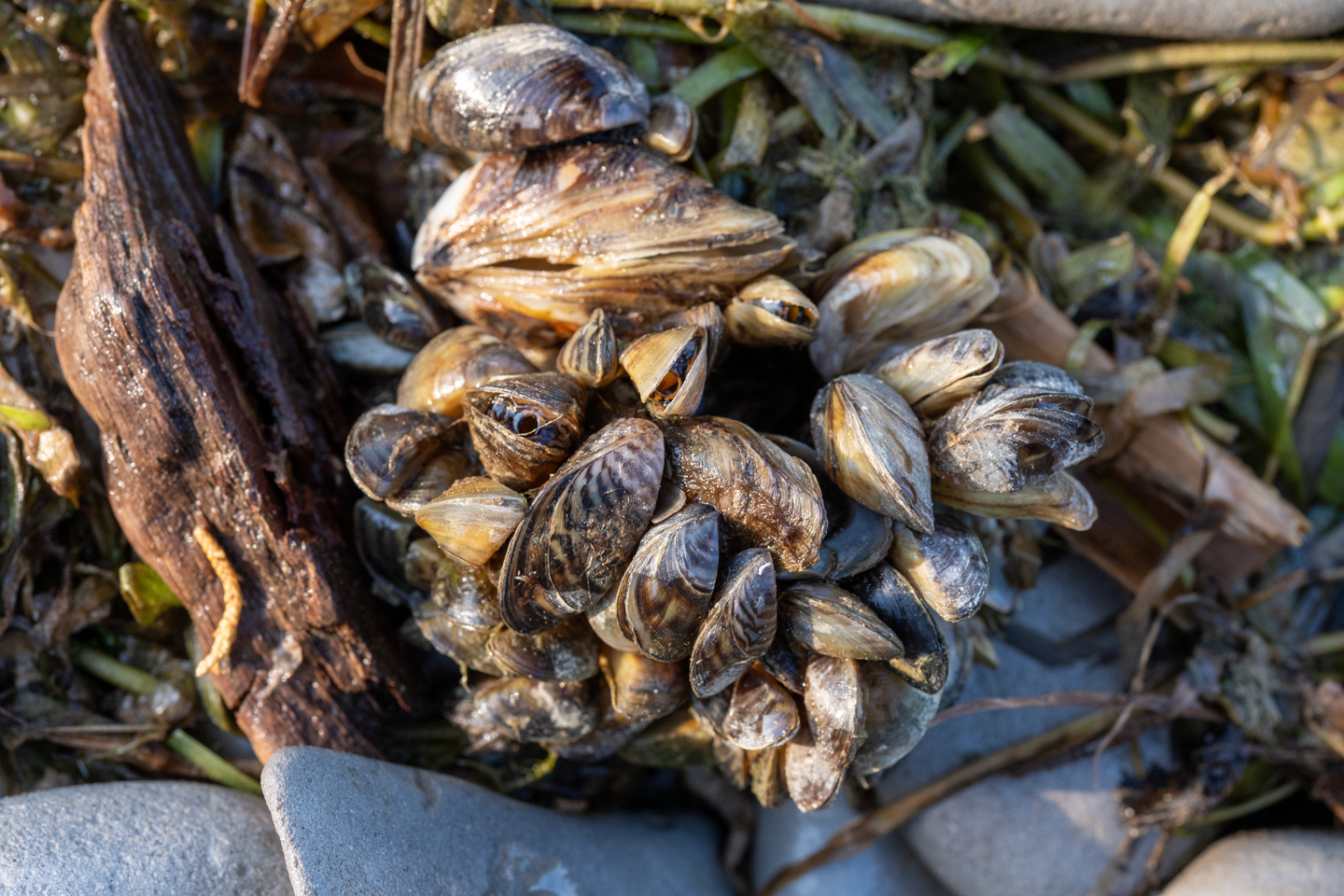Oct 2, 2025
Commissioners to consider sportfishing orders
They will take up these potential fishing changes at their meeting Oct. 10 at Niobrara State Park.

As many Nebraskans return to the water to enjoy boating for the summer, the Nebraska Game and Parks Commission urges them to be wary of pesky hitchhikers that invade the state’s waters.
Invasive species can hitchhike on boats and equipment, spreading to other lakes. To prevent their spread, Game and Parks watercraft inspectors will be checking boats before they launch at lakes across the state. If zebra mussels are found attached to a boat, it will not be allowed to launch.
A zebra mussel is a highly invasive aquatic species that looks like a D-shaped clam, with alternating light and dark bands. Most zebra mussels are less than an inch long. They form dense colonies and filter large quantities of plankton from water, decreasing the food supply for native species. In addition, these mussels pollute swimming areas with sharp shells and clog water intake pipes.
Zebra mussels can live up to two weeks out of water; young zebra mussels — or veligers — are invisible to the naked eye and can be spread through any water left undrained.
Game and Parks regulations require anglers, hunters and boaters conduct clean, drain and dry procedures before leaving a water body; they also are not allowed to arrive at a water body with any water from another.
After boating and before launching your boat in a different water body:
Visit StopAquaticHitchhikers.org for more information on procedures and AIS on watercraft.
Report any suspected observation of zebra mussels or other aquatic invasive species to Game and Parks at 402-471-7602 or at ngpc.ais@nebraska.gov.